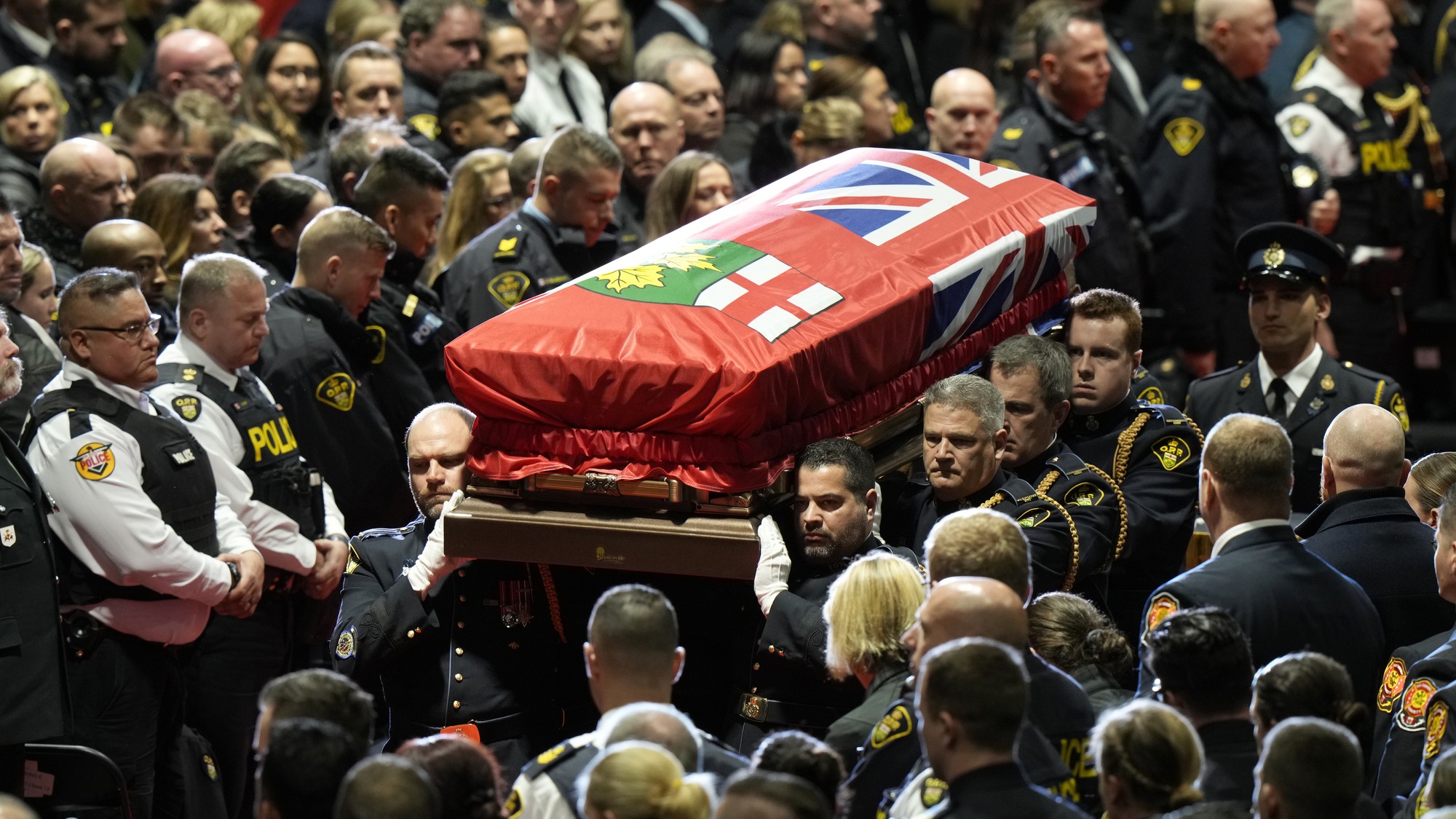On Dec. 22, 2022, Ontario Provincial Police (OPP) Const. Grzegorz Pierzchalla was killed near Hagersville while responding to a call involving vehicle stuck in a ditch. There, he found Randall McKenzie, 25, and Brandi Stewart-Speary, 30, who allegedly ambushed the officer and shot him.
At the time of the shooting McKenzie was already out on bail for possessing firearms and assaulting a different officer.
McKenzie had skipped a court hearing in September 2022 for those charges. A warrant was then issued for his arrest.
Since Pierzchalla’s death, three more Canadian officers have been killed in the line of duty. Two of them, Const. Travis Jordan, 35, and Const. Brett Ryan, 30, were shot while responding to a call in Edmonton.
It’s time the federal government makes a change to bail laws when it comes to offences involving firearms. It’s time something is done to keep both police officers and the public safe from potentially violent repeat offenders.
The incident with Pierzchalla led to a call for change for bail regulations from provincial leaders. In January, all 13 premiers sent a letter to Ottawa, asking Prime Minister Justin Trudeau to make changes to Canada’s bail system.
“The justice system fundamentally needs to keep anyone who poses a threat to public safety off the streets,” the letter read. “And this starts with meaningful change to the Criminal Code, an area solely within the federal government’s jurisdiction.”
The letter called for a reverse onus on bail for offenders charged with possession of a loaded, prohibited or restricted firearm.
According to the letter, this means that someone accused of those crimes would need “to demonstrate why their detention is not justified when they were alleged to have committed an offence where there was imminent risk to the public.”
This request by the premier’s is one that has been echoed by police officers across the country.
In a press conference shortly after the shooting of Const. Pierzchalla, OPP Commissioner Thomas Carrique made a public call for change.
“The murder of Const. Grzegorz was preventable. This should’ve never happened. Something needs to change,” he said. “Our police officers, your police officers, my police officers, the public deserves to be safeguarded against violent offenders who are charged with firearms related offences.”
This is echoed by retired OPP Det. Const. Brenda Orr, whose husband was killed in the line of duty in November 2006.
Orr has first hand perspective on the damage that these bail regulations can cause as she is a member of SOLE (Survivors of Law Enforcement), a non-profit organization that supports the families of fallen officers.
“The punishments are so lenient that they just keep, you know, going out and reoffending,” she recently told Humber News. “The same is with the parole board not keeping people in custody and releasing them back out to reoffend.
“It’s very difficult for the police to do their jobs and they end up dealing with the same people over and over again because the punishments don’t fit the crime,” Orr said.
The leader of the federal opposition, Pierre Poilievre, has also called for change to the Canadian bail system.
Conservatives put forward a motion to repeal Bill C-75 on Feb. 1, bail legislation that the Liberal government passed in 2019. The bill made a number of changes aimed at reducing judicial delays, and releasing offenders at the earliest opportunity.
This was later accompanied by the passing of Bill C-5 in 2022, which repealed some mandatory minimum sentences for firearms offences.
The Conservatives argue those measures are putting too many violent offenders out on the streets on bail.
Despite all the calls for change, not everyone feels that a reverse onus system would be the solution that Canadians need. Jane Sprott, a criminology professor from Toronto Metropolitan University, told Humber News that while Canada has an imperfect system, the onus needs to remain on civil liberties.
“If there’s concerns about a serious offence on release, you try to mitigate that. But the person is legally innocent, so there’s a chance they could have all the charges withdrawn,” she said. “So you really can’t intervene deeply in a legally innocent person’s life.”
Section 11(e) of the Canadian charter of rights and freedoms, however, states all Canadians have the right not to be denied reasonable bail without just cause.
The key word being reasonable. Canadians must decide whether the definition of reasonable includes denying bail to those charged with gun crimes. They either find gun crimes abhorrent, or they don’t.
There were 297 victims of homicide in Canada where shooting was the primary cause of death in 2021, according to Statistics Canada. That was the highest rate since 1992.
Despite gun violence being a bigger problem for Canadians than ever, and all of these requests for change, there still has been nothing done in four months since the death of Pierzchalla.
It’s time the federal government steps up and acts to fix our bail rules for firearm offenders.

